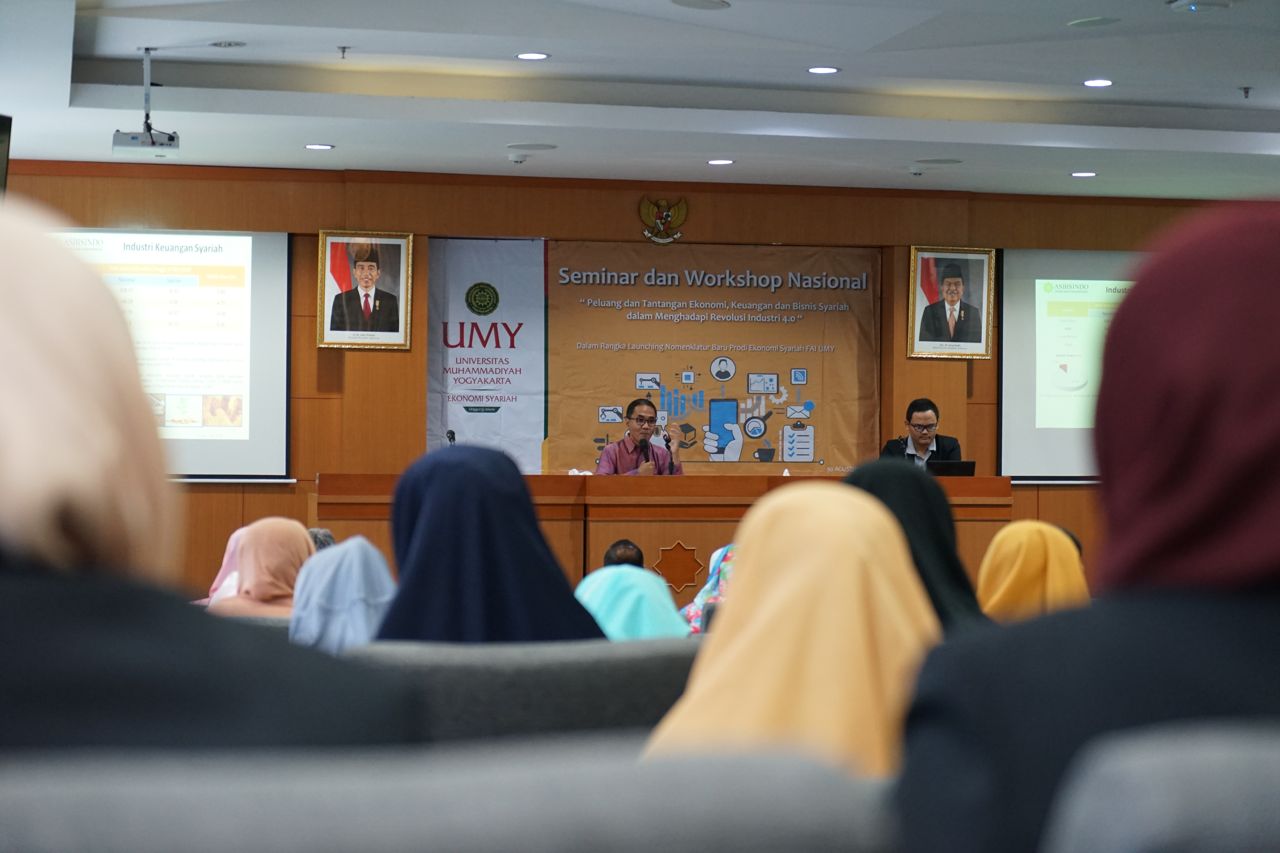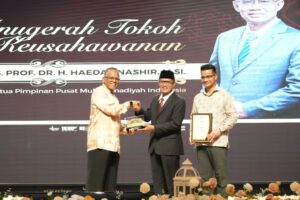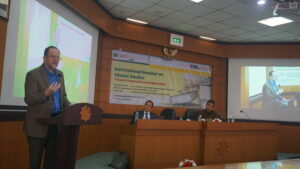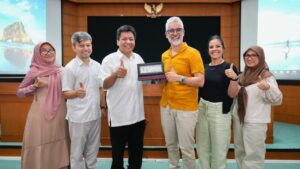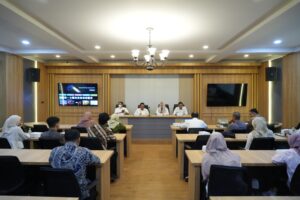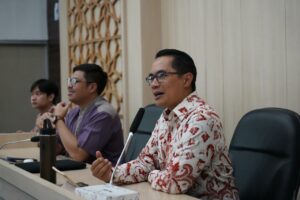A survey by Association of Indonesian Internet Service Provider (APJII) showed that 143.26 million Indonesian people use internet. 80 percent of the users accessed internet via a smartphone. Many parties, particularly Sharia Banking, utilized the circumstance to confront industrial revolution 4.0.
In a national seminar on Opportunities and Challenges of Sharia Economy, Finance, and Business at Building of Kasman Singodimedjo of Universitas Muhammadiyah Yogyakarta (UMY) on Thursday (30/8), a keynote speaker Herbudhi Setio Tama stated that we have to deal with effects of the industrial revolution. “The internet usage rate in daily activities now reaches 57 percent now, and it will rise up to 88 percent. The fact, then, was responded by banking to innovate to ease customers as it created a mobile banking app. The condition should also be leveraged by sharia banking to adapt the development. Compared to Malaysia, sharia economy development of Indonesia develops slowly,” declared Herbudhi, Executive Director of ASBISINDO (Indonesia Sharia Banking Association).
Sharia economy is dealing with not only sharia banking but also macro economy and its chances. “For instance, in halal food industries, worldwide spending on halal food in 2016 reached 1,245 billion US dollars and the Indonesia became a country with the greatest consumption of the halal food. However, we are only halal food consumers and have yet focus on producing it. This should be an occasion for sharia economy of Indonesia. Indeed, Indonesia can become a tourism site of halal food in the world,” he explained.
Meanwhile, market share of sharia finance is increasing. “The total of industrial assets of sharia finance in Indonesia till May 2018 was 8.38 percent of the state finance. It indicates that there is an opportunity and we are challenged to respond it,” asserted Herbudhi.
“We can synergize to establish a sharia economy ecosystem undertaken by each element such as community, university members, media, regulators, and sharia banking. For example, in the community, we should think how they can open a bank account and do transaction through sharia banking. One of the reasons why people are less interested in sharia banking is that features of sharia service are below standards of conventional banking,” conveyed Herbudhi.
Additionally, the seminar was along with launching of a new nomenclature of Department of Sharia Economics of Faculty of Islamic Studies of UMY. Dean of the faculty Dr. Akil Khilmiyah, M.Ag. stated that the nomenclature shift was an innovation of UMY to bear graduates capable of contributing to sharia economy of Indonesia.
